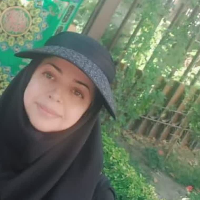Evolution of Love in the Coronavirus Crisis: Lived Experience of Couples with Stable Marriage
The COVID–19 epidemic and its resulting restrictions created challenging conditions for all human societies. One of the research areas has been the effect of the COVID–19 pandemic on the emotional relationships of couples. Quarantine situation, distancing and limitation of social relationships, economic problems, and demanding responsibilities at home and family caused stresses, extending over all extramarital areas to the interpersonal space of couples. However, the emotional relationships of spouses in general and marital love in particular have a fantastic potential to motivate couples to deal with problems positively, provide strong support, and develop dyadic strategies to counteract crises. Love of couples in the era of COVID–19 is a transformer and transformable phenomenon, creating an evolution in couples' responses to the crisis. This research aims to study the evolution of love in the COVID–19 era based on the lived experience of couples with enduring marriages.
The current research was conducted in 2023 and employed a qualitative approach. Focusing on the participants' lived experiences, we used the interpretive phenomenological analysis (IPA) method to analyze the study data. The statistical population included couples with stable marriages and experienced love in their married life. Sampling was done in a purposeful way and with the snowball method. The adequacy of the sample size was achieved based on the theoretical saturation criterion from interviews with 15 couples. Each research unit included a couple (husband and wife). We employed in–depth semi–structured interviews to access the couples' experiences and collect data. The interviews for each couple consisted of two individual sessions and one joint couple session, held in virtual or physical space between 60 and 90 minutes. A written consent form was taken from the couples to record the sessions. After the interview, it was transcribed, and open identifiers were extracted. In the next step, all the available identifiers were placed in conceptually similar classes under the title of primary concepts. Then, sub–themes emerged by classifying primary concepts under general and abstract classes. In the final stage, the research themes were obtained by categorizing the sub–themes based on a systematic pattern. The research was validated based on the reliability criteria of Lincoln and Guba (1985) with five components: credibility, transferability, dependability, confirmability, and inferential adequacy.
The findings of this research consisted of 280 open identifiers, 81 primary concepts, 11 sub–themes, and 3 themes. The discovered sub–themes included being together, inclusive care, self–sacrifice, sexual relationship rearrangement, adjustment of individuality–intimacy, mutual responsibility, cooperation and sharing, management of emerging conflicts, dyadic cohesion, creativity, and flexibility, and making marital purposeful. In the final stage of this process, 3 main themes were obtained: expansion of intimacy, evolution of interactive strategies, and dyadic adaptation and coping. In the data analysis process, two dimensions of couples' experiences emerged: internal experiences and relational experiences.
During the COVID–19 era, the experience of love in the lives of couples with a history of romantic relationships was continuously and positively circled, encompassing the effects of romantic emotions on coping with the crisis and the effects of couples' dyadic coping on the expansion of romantic emotions. These experiences show the evolution of love in dealing with the challenge of the COVID–19 disease and the value of romantic investments in crisis management.
-
Effectiveness of “Group Schema Therapy” on Psychological Capital and Loneliness of Second Secondary Male Students with Internet Addiction
Ehsan Moradi, Mojtaba Mohamadi Jalali Farahani*, Mansor Sodani
Journal of Health Promotion Management, -
Effectiveness of Acceptance and Commitment Therapy on the Psychological Well-Being of Couples Referring to the Dispute Resolution Council
Kheirollah Karimzadeh, *, Sahar Safarzadeh, Amin Koraei
Applied Family Therapy Journal, Winter 2025 -
The Effectiveness of Emotion-Focused Couples Therapy on Marital Commitment, Love Schemas, and Emotional Schemas in Couples with Extramarital Affairs
Saeed Isari, Masoud Shahbazi *,
Applied Family Therapy Journal, Summer 2024 -
The Effectiveness of Emotion Regulation Training based on the Gross Process Model on Reactive Aggression, and Alexithymia of Aggressive Female Students with Abusive Parents
Fatemeh Hashemian, Masoud Shahbazi*,
Journal of Jiroft University of Medical Sciences,




